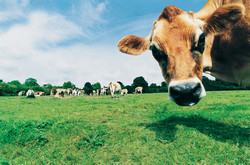Studying EU agricultural policy
The AGRIREFORM (Farmers in Brussels: Agricultural interest groups and the Common Agricultural Policy, 1967-1992) project studied the role and influence of organised farm interest groups. These groups and the power they wielded helped prevent more substantial reform of the Common Agricultural Policy (CAP) before 1992. The CAP is the oldest and most contested yet still most important public policy of today's EU. At the end of the 1960s, overproduction resulted in a steep increase in agricultural spending. The costly subsidies of the Policy were strong incentives for reforming it and the European Commission repeatedly attempted to revise the CAP beginning in the late 1960s. The project investigated how and to what extent farm interests and their organised representation changed in response to European policy changes and reform attempts by the European Commission. Researchers traced the Europeanisation and institutionalisation of agricultural interests. A detailed analysis of the changes of farm organisations was conducted, noting Member States' redefinition of agricultural preferences in European rather than purely national terms. Two case studies of agricultural commodities, cereals and milk, were also studied. These case studies provided substantial evidence for why and how the national and Community-level farmers' organisations managed to resist radical reforms by the European Commission. They also provided insights into the gradual decline of the farmers' lobbying power. The research team consulted a broad range of archives and other sources in order to collect the necessary empirical evidence. Notably, a number of semi-structured interviews with key representatives of farm groups and European Commission officials contributed personal insights into how these organised farm groups influenced policy-making.




